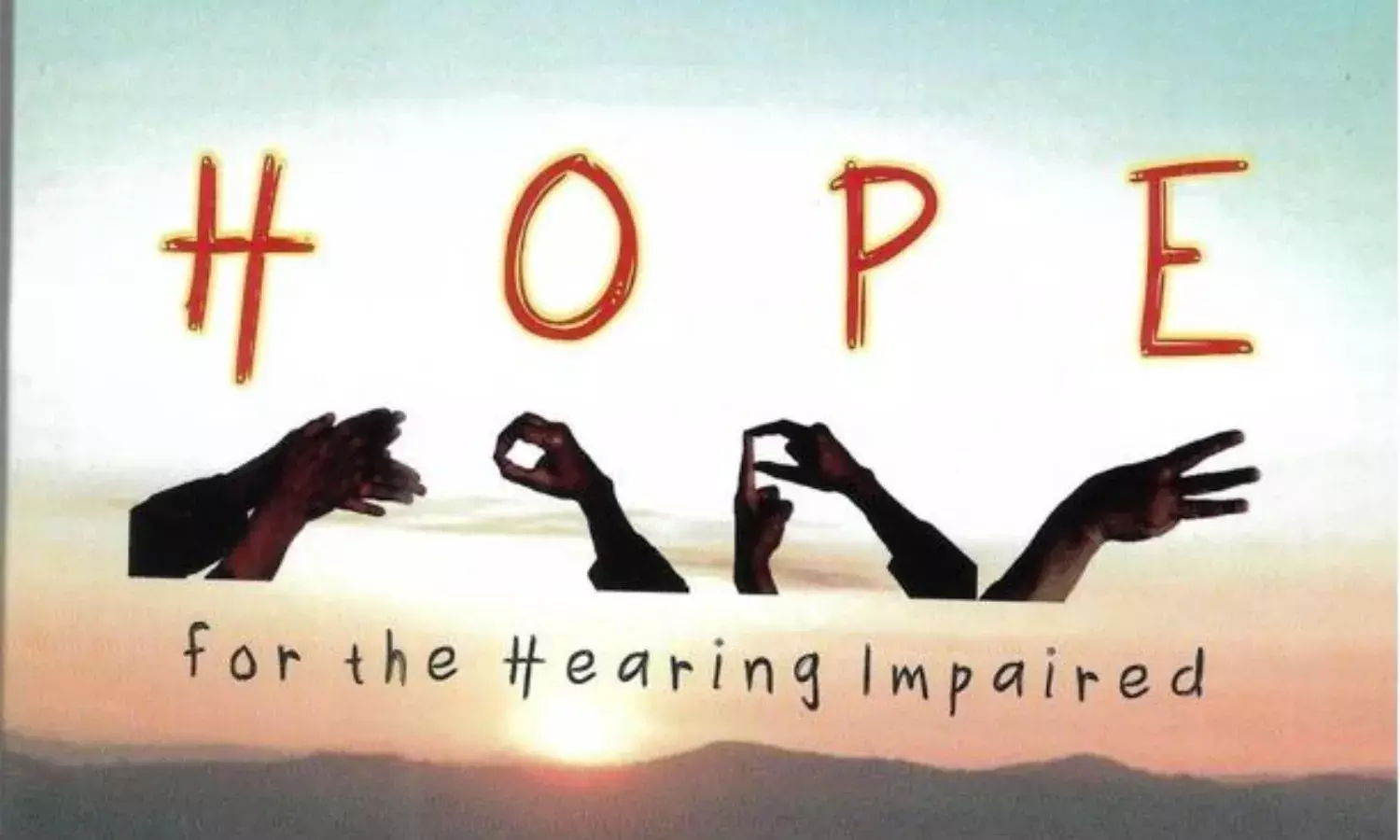Hope for the Hearing Impaired: Short Stories
Deafness is a hidden disability;

Raj Lakshmi Dube’s book Hope for the Hearing Impaired brings to the fore the heartrending stories of 15 people who are hearing impaired, and their trials and tribulations. Each of these stories tells its own tale.
Abha’s is a unique case of deaf blindness, but it goes to her credit that she courageously overcomes all her hurdles in order to achieve her goal, while in the case of Vivek and Nisha, it is poverty that defines their lives.
And if his parents were alert, they could have prevented the disability of their son Jordon. It was fate in the case of Tarun, while Priya saved herself in the nick of time thanks to her alertness, and a problem at birth robbed Ankita of her hearing ability.
Deafness is common both among the rich and the poor or the educated or the illiterate; it is caused due to some sickness, accident, weakness, poverty, or some element of ignorance during pregnancy.
The exact reason is not known, and until medical science finds a cure these souls will have to draw upon their inner strength and the help of society to live a life of purposefulness and dignity.
“My sole purpose in writing this book was to bring about some sort of awareness in the society about the problems that hearing impaired people face, and that they are also just like you and me; they have the same feelings, ambitions and sensitivities. But unfortunately their ability to communicate is severely restricted,” writes Dube.
Raj Dube’s own life too had seen many ups and downs. Her husband died when she was barely 38, leaving her with two children to bring up. Fortuitously she was employed on ‘compassionate grounds’ in the NTPC where her husband had worked, easing her task of bringing up and educating her children.
Raj finally superannuated in May 2010; fortunately both the children by then were comfortably settled and married.
The NTPC had employed some deaf and mute individuals as per government guidelines. Raj was fascinated to see how those deaf and mute persons communicated with others; the NTPC had conducted a three-day introductory course in sign language, which is how her interest was generated.
After her retirement, she moved from Delhi to Dehra Dun in 2010 to be near her brother who lived here. She loved the mountains and the town’s ambiance, but there was a vacuum of sort; she wanted to do something constructive and creative.
It was just by happenstance that she chanced to walk into the Bajaj Institute of Learning, a short distance away from her residence. It was there that she learned international sign language; that was then the beginning of her journey in the world of the deaf.
For her, that world was a different ball game in which love and compassion permeated. There are today more than 500 million people worldwide with hearing impairment (more than 5% of the world’s population) of whom 35 million are children.
In India alone, there are 18 million hearing impaired while another 63 million suffer from high auditory loss; four in every 1,000 children also suffer from severe to profound hearing loss.
Unfortunately, the vast majority of these people live in low and middle-income countries deprived of access to modern hearing care services. Deafness being a hidden disability, it is difficult to differentiate those with hearing difficulties.
“It was working with the deaf and seeing at first hand their plight that prompted me to highlight their problems,” says Dube.
“There are limited facilities for the higher education of the deaf in the country, and fewer job opportunities. Most of the educated deaf I have met were interested only in white collar jobs, wear neckties, go to the office or teach the deaf; they are in their comfort zone with the deaf community.
“What can we do then?” she asks and suggests herself.
. Create higher education facilities for them
. Try changing their mindset that no job is too low
. Help them understand that to do white collar jobs, they will have to study twice as hard as others
. Deaf children are either ignored or pampered in a family, neither is good for their healthy growth
. And finally, let us treat deaf people as ordinary people – neither less nor more than others. They require our understanding, empathy and support, not our pity.
The author is herself a woman of indomitable courage and fortitude. Survivor of three serious encounters with cancer, she took to writing a few years ago, writing articles on a variety of subjects including the deaf and mute.
As in this book, she has also tried her hand at writing short stories.
Today she is happy interacting with the deaf and mute community, writing about them with a view to bringing their problems and plight to the fore.
Hope for the Hearing Impaired (162 pages, Rs 300) is currently available here

